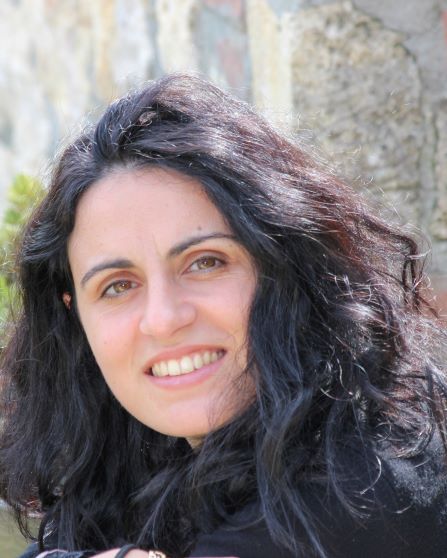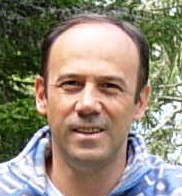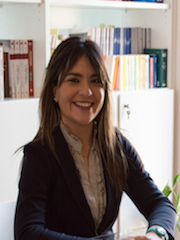Studying at the University of Verona
Here you can find information on the organisational aspects of the Programme, lecture timetables, learning activities and useful contact details for your time at the University, from enrolment to graduation.
Academic calendar
The academic calendar shows the deadlines and scheduled events that are relevant to students, teaching and technical-administrative staff of the University. Public holidays and University closures are also indicated. The academic year normally begins on 1 October each year and ends on 30 September of the following year.
Course calendar
The Academic Calendar sets out the degree programme lecture and exam timetables, as well as the relevant university closure dates..
| Period | From | To |
|---|---|---|
| Primo semestre (lauree) | Sep 25, 2023 | Jan 19, 2024 |
| Periodo generico | Oct 1, 2023 | May 31, 2024 |
| Secondo semestre (lauree) | Feb 26, 2024 | May 31, 2024 |
| Session | From | To |
|---|---|---|
| Sessione invernale (lauree) | Jan 22, 2024 | Feb 23, 2024 |
| Sessione estiva (lauree) | Jun 3, 2024 | Jul 12, 2024 |
| Sessione autunnale (lauree) | Aug 26, 2024 | Sep 20, 2024 |
| Session | From | To |
|---|---|---|
| Sessione autunnale a.a. 2022/2023 | Dec 5, 2023 | Dec 7, 2023 |
| Sessione invernale a.a. 2022/2023 | Apr 3, 2024 | Apr 5, 2024 |
| Sessione estiva a.a. 2023/2024 | Sep 4, 2024 | Sep 6, 2024 |
Exam calendar
Exam dates and rounds are managed by the relevant Economics Teaching and Student Services Unit.
To view all the exam sessions available, please use the Exam dashboard on ESSE3.
If you forgot your login details or have problems logging in, please contact the relevant IT HelpDesk, or check the login details recovery web page.
Should you have any doubts or questions, please check the Enrollment FAQs
Academic staff
 adriano.cecconi@univr.it
adriano.cecconi@univr.it
 lorenzo.frattarolo@univr.it
lorenzo.frattarolo@univr.it
 federico.innocenti@univr.it
federico.innocenti@univr.it
 martina.menon@univr.it
martina.menon@univr.it
 francesca.rossignoli@univr.it
francesca.rossignoli@univr.it
 0444 393941 (Ufficio Vicenza) 0458028261 (Ufficio Verona)
0444 393941 (Ufficio Vicenza) 0458028261 (Ufficio Verona)
 massimo.tezza@univr.it
massimo.tezza@univr.it
Study Plan
The Study Plan includes all modules, teaching and learning activities that each student will need to undertake during their time at the University.
Please select your Study Plan based on your enrollment year.
1° Year
| Modules | Credits | TAF | SSD |
|---|
2° Year It will be activated in the A.Y. 2024/2025
| Modules | Credits | TAF | SSD |
|---|
1 module among the following3° Year It will be activated in the A.Y. 2025/2026
| Modules | Credits | TAF | SSD |
|---|
2 modules among the following| Modules | Credits | TAF | SSD |
|---|
| Modules | Credits | TAF | SSD |
|---|
1 module among the following| Modules | Credits | TAF | SSD |
|---|
2 modules among the following| Modules | Credits | TAF | SSD |
|---|
Legend | Type of training activity (TTA)
TAF (Type of Educational Activity) All courses and activities are classified into different types of educational activities, indicated by a letter.
Macroeconomics (2023/2024)
Teaching code
4S00242
Academic staff
Coordinator
Credits
9
Also offered in courses:
- Macroeconomics of the course Bachelor's degree in Business Innovation and Economics
Language
Italian
Scientific Disciplinary Sector (SSD)
SECS-P/01 - ECONOMICS
Period
Secondo semestre (lauree) dal Feb 26, 2024 al May 31, 2024.
Courses Single
Authorized
Learning objectives
The course aims at introducing students to the fundamental topics of macroeconomics. This discipline deals with the aggregate functioning of economic systems determined by the collective behaviour of consumers and firms, by the state intervention on the economy and by the international relations with the rest of the world. The course provides students also with a knowledgeable understanding of the scientific language and methodology adopted by macroeconomics. Its theory is made up of mathematical tools and models which formalizes domestic and international mechanisms behind the functioning of aggregate markets of goods, money and labour, since their interaction determines the level of national income, employment, and prices.
The course shall also deal with the new evolving international macroeconomic scenarios and the impact of innovation and technological progress on the long run economic growth of countries.
Speech by invited academic and business experts shall supplement the regular lectures and upon completion of the course, students will be able to make use of such analytical tools to understand and interpret the factors steering the evolution of economic systems at aggregate national, international and European level and to evaluate the macroeconomic effects of Central Bank and fiscal policy interventions.
Prerequisites and basic notions
Knowledge of the basics of linear algebra: solution of linear equations and systems of linear equations; graphical representation of linear and hyperbolic functions
Program
opics of the course (taught in Italian language) are:
1. Survey of the main schools of economic thought .
2. National accounting.
3. Aggregate demand and the income multiplier.
4. The IS-LM model in a closed economy
5. Consumption, investment and government expenditure
6. Aggregate demand and supply.
7. Inflation and unemployment.
8. Macroeconomics of the European Union
8. Open economy macroeconomics.
The course is divided into three parts:
(i) models for the determination of output and employment in the short term, even in an open economy;
(ii) medium-term models for the analysis of inflation and the cyclic changes in production;
(iii) International macroeconomic models: interdependence, constraints and new trends of the World economy
Bibliography
Didactic methods
Teaching method of the course is classroom lesson in which the topics of macroeconomic theory will be developed. . Classroom exercises and expert testimonials will be added to the lectures. The University e-learning platform will be used to make the materials used in the exercises and other readings useful for understanding the subject available to students.
Textbooks are: G. TONDINI, Training and distribution of wealth in the different schools of thought, Aracne Roma, 2006.
DORNBUSCH, FISCHER, STARTZ, CANULLO, PETTENATI, Macroeconomics, McGraw-Hill Higher Education Italy, Milan, 2020, 12th ed. Chapters: 1,2,4,5,6,7,8 (except appendix), 9 (paragraph 9.1 only), 10,13,15.
Learning assessment procedures
The final assessment test consists of a written exam with open questions on the macroeconomic theories explained in the course. Students will be able to carry out an intermediate test on the program of the course explained in the first five weeks of lessons. Students who pass the intermediate test will be able to complete the exam on the rest of the program in the first session of the summer session.
Evaluation criteria
In the exam, the student will have to demonstrate the mastery of the logical reasoning of macroeconomics and the ability to use the graphic and mathematical formalizations of the main short, medium and long term macroeconomic models. The final grade will take into account the accuracy and completeness of the answers given to the exam questions. When in the answer it is necessary to use formulas and/or figures, clear definition of variables ie required and the economic meaning of figures has to be clearly explained
Criteria for the composition of the final grade
The final grade will be given by the average of the partial marks obtained by the student on each question. Each answer can obtain a mark in the range 0-30. In the case of participation in the intermediate tests, the final mark will be given by the average of the marks obtained in the two parts.
Exam language
Italiano
Type D and Type F activities
Nei piani didattici di ciascun Corso di studio è previsto l’obbligo di conseguire un certo numero di crediti formativi mediante attività a scelta (chiamate anche "di tipologia D e F").
Oltre che in insegnamenti previsti nei piani didattici di altri corsi di studio e in certificazioni linguistiche o informatiche secondo quanto specificato nei regolamenti di ciascun corso, tali attività possono consistere anche in iniziative extracurriculari di contenuto vario, quali ad esempio la partecipazione a un seminario o a un ciclo di seminari, la frequenza di laboratori didattici, lo svolgimento di project work, stage aggiuntivo, eccetera.
Come per ogni altra attività a scelta, è necessario che anche queste non costituiscano un duplicato di conoscenze e competenze già acquisite dallo studente.
Quelle elencate in questa pagina sono le iniziative extracurriculari che sono state approvate dalla Commissione didattica e quindi consentono a chi vi partecipa l'acquisizione dei CFU specificati, alle condizioni riportate nelle pagine di dettaglio di ciascuna iniziativa.
Si ricorda in proposito che:
- tutte queste iniziative richiedono, per l'acquisizione dei relativi CFU, il superamento di una prova di verifica delle competenze acquisite, secondo le indicazioni contenute nella sezione "Modalità d'esame" della singola attività;
- lo studente è tenuto a inserire nel proprio piano degli studi l'attività prescelta e a iscriversi all'appello appositamente creato per la verbalizzazione, la cui data viene stabilita dal docente di riferimento e pubblicata nella sezione "Modalità d'esame" della singola attività.
Scopri i percorsi formativi promossi dal Teaching and learning centre dell'Ateneo, destinati agli studenti iscritti ai corsi di laurea, volti alla promozione delle competenze trasversali: https://talc.univr.it/it/competenze-trasversali
CONTAMINATION LAB
Il Contamination Lab Verona (CLab Verona) è un percorso esperienziale con moduli dedicati all'innovazione e alla cultura d'impresa che offre la possibilità di lavorare in team con studenti e studentesse di tutti i corsi di studio per risolvere sfide lanciate da aziende ed enti. Il percorso permette di ricevere 6 CFU in ambito D o F. Scopri le sfide: https://www.univr.it/clabverona
ATTENZIONE: Per essere ammessi a sostenere una qualsiasi attività didattica, incluse quelle a scelta, è necessario essere iscritti all'anno di corso in cui essa viene offerta. Si raccomanda, pertanto, ai laureandi delle sessioni di dicembre e aprile di NON svolgere attività extracurriculari del nuovo anno accademico, cui loro non risultano iscritti, essendo tali sessioni di laurea con validità riferita all'anno accademico precedente. Quindi, per attività svolte in un anno accademico cui non si è iscritti, non si potrà dar luogo a riconoscimento di CFU.
| years | Modules | TAF | Teacher |
|---|---|---|---|
| 1° 2° 3° | Thematic cycle of conferences on Women's "leadership": data, reflections and experiences | D |
Martina Menon
(Coordinator)
|
| 1° 2° 3° | Educational laboratory on credit securitization | D |
Michele De Mari
(Coordinator)
|
| years | Modules | TAF | Teacher | |
|---|---|---|---|---|
| 1° | Programming in Matlab | D |
Marco Minozzo
(Coordinator)
|
|
| 1° 2° 3° | Data Analysis Laboratory with R (Vicenza) | D |
Marco Minozzo
(Coordinator)
|
|
| 1° 2° 3° | Data Visualization Laboratory | D |
Marco Minozzo
(Coordinator)
|
|
| 1° 2° 3° | Python Laboratory | D |
Marco Minozzo
(Coordinator)
|
|
| 1° 2° 3° | Data Science Laboratory with SAP | D |
Marco Minozzo
(Coordinator)
|
|
| 1° 2° 3° | Advanced Excel Laboratory (Vicenza) | D |
Marco Minozzo
(Coordinator)
|
|
| 1° 2° 3° | Excel Laboratory (Vicenza) | D |
Marco Minozzo
(Coordinator)
|
|
| 1° 2° 3° | Plan your future | D |
Paolo Roffia
(Coordinator)
|
|
| 1° 2° 3° | Plan your future | D |
Paolo Roffia
(Coordinator)
|
|
| 1° 2° 3° | Programming in SAS | D |
Marco Minozzo
(Coordinator)
|
|
| years | Modules | TAF | Teacher | |
|---|---|---|---|---|
| 1° 2° | Digital experiments in economics - 2023/2024 | D |
Claudio Zoli
(Coordinator)
|
|
| 1° 2° | Topics in economics and ethics of artificial intelligence- 2023/2024 | D |
Claudio Zoli
(Coordinator)
|
|
| 1° 2° 3° | Key markets / business approach & business negotiations - 2023/2024 | D |
Angelo Zago
(Coordinator)
|
|
| years | Modules | TAF | Teacher |
|---|---|---|---|
| 1° 2° 3° | Soft skills coaching days (Vicenza) - 2023/2024 | D |
Paola Signori
(Coordinator)
|
Career prospects
Module/Programme news
News for students
There you will find information, resources and services useful during your time at the University (Student’s exam record, your study plan on ESSE3, Distance Learning courses, university email account, office forms, administrative procedures, etc.). You can log into MyUnivr with your GIA login details: only in this way will you be able to receive notification of all the notices from your teachers and your secretariat via email and soon also via the Univr app.






























